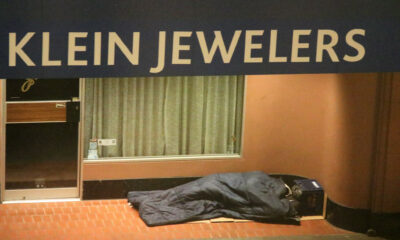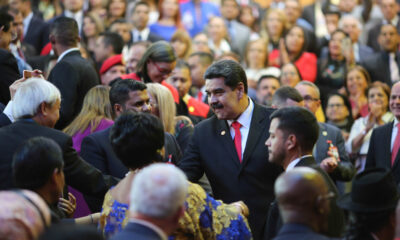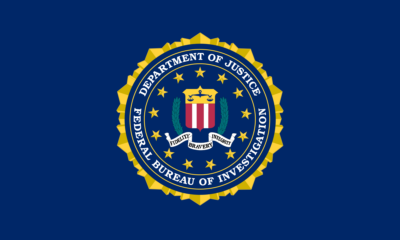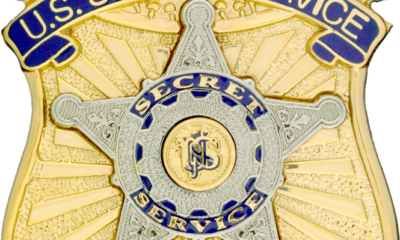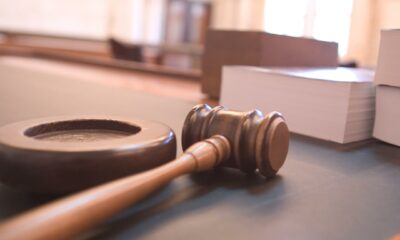Executive
Cruz, Issa Demand Answers on Possible Secret Service Cocaine ‘Cover-Up’
Reps. Ted Cruz (R-Texas) and Darrell Issa (R-Calif.) are demanding answers after revelations of a cover-up of cocaine in the White House.
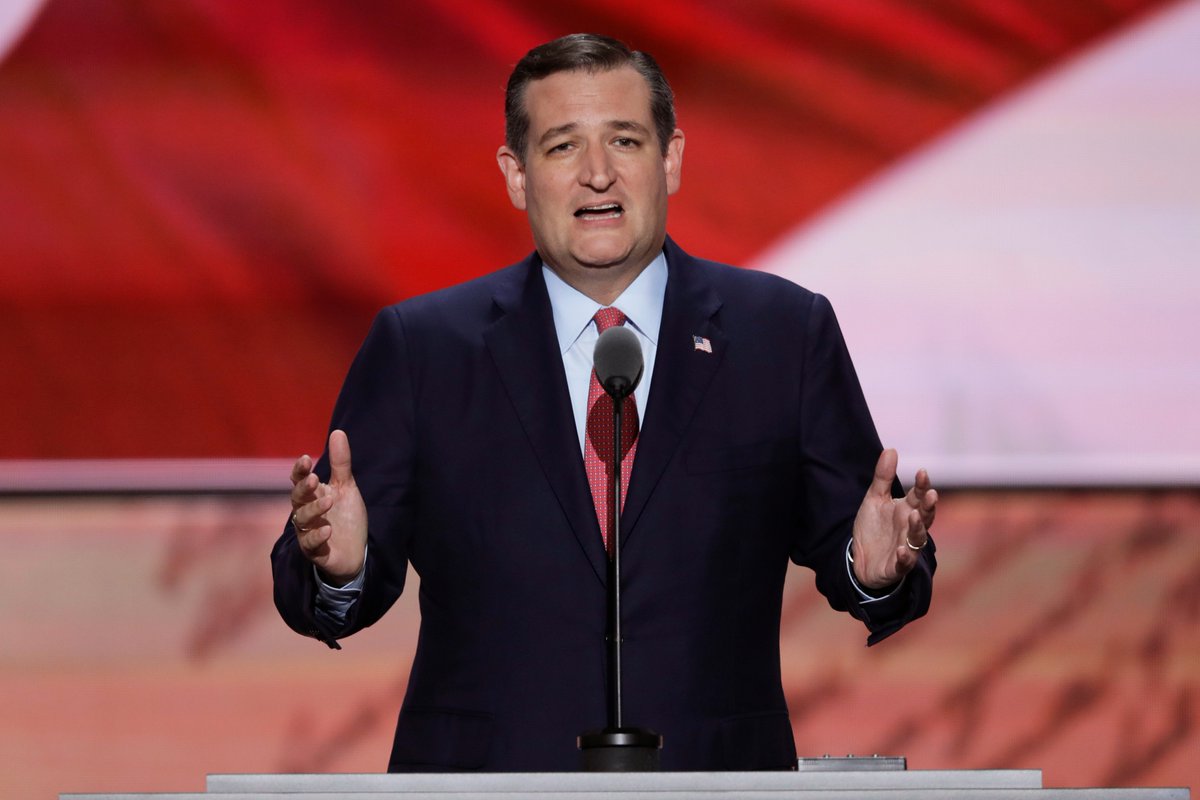
Sen. Ted Cruz and Rep. Darrell Issa are demanding answers from the Secret Service about a possible cover-up and a “troubling pattern of misconduct” surrounding the agency’s handling of cocaine discovered in the White House last summer.
Who wanted to destroy the cocaine?
The two Republican lawmakers, who serve in key Judiciary Committee roles in the Senate and the House, cited revelations from a RealClearPolitics article last week that former Secret Service Director Kimberly Cheatle and senior agency leaders sought to destroy the cocaine discovered in the White House last summer. Despite the push, leaders of the Forensics Services and the Uniformed Divisions rejected efforts to dispose of the evidence and presumably are keeping the bag of cocaine in a Secret Service evidence vault.
White and his supervisor, Glenn Dennis, as well as Richard Macauley, then-acting chief of the Uniformed Division, resisted pressure from Cheatle and others to destroy the evidence. Afterward, however, Macauley was passed over for the permanent position of Uniformed Division chief despite receiving agency accolades, RCP reported last week. The decision to bypass Macauley, a black man, raised eyebrows within the agency amid a Diversity, Equity and Inclusion push that Cheatle championed.
Cheatle chose a retired Secret Service top official to head the Uniformed Division instead of Macauley, raising concerns in the agency that passing over Macauley for the job was an act of retaliation. In 2018, Macauley was named the Secret Services Uniformed Division Officer of the Year. He would go on to serve one year, from February 2022 to January 2023, as deputy assistant sergeant at arms at the U.S. House of Representatives.
Patterns of misconduct and cover-up
“Recent revelations suggest a troubling pattern of misconduct and possible cover-up involving former Director Kimberly Cheatle and the United States Secret Service,” Cruz and Issa wrote in a Thursday letter to Acting Secret Service Director Ronald Rowe and Matt White, vault supervisor in the Forensics Services Division. “This issue comes at a time when the Secret Service is already under scrutiny following its failure to protect former President Donald Trump during an assassination attempt on July 13, 2024.”
White is responsible for a vault where evidence, including the cocaine discovered in the White House last summer, is stored for seven years, per agency evidence protocols. According to several sources in the Secret Service community who spoke to RCP on condition of anonymity out of fear of reprisal, White received a call from Cheatle or a someone speaking on her behalf last summer pressing him to destroy the evidence after the cocaine was tested by the Homeland Security Department’s Biodefense Analysis and Countermeasures Center and the FBI’s crime laboratory for fingerprint and DNA analysis.
Those two agencies found that it was cocaine, not anthrax or another biothreat. While the FBI did not pick up fingerprints on the small bag of cocaine, it found some DNA material, according to three sources in the Secret Service community. The FBI also reportedly said the agency ran the DNA material against national criminal databases and “got a partial hit.”
A short list of suspects
The term “partial hit” is vague in this context, but in forensics lingo usually means that law enforcement found DNA matching a blood relative of a finite pool of people.
Nonetheless, the Secret Service announced the conclusion of its investigation into the cocaine incident 11 days after it was discovered. In closing the investigation, Secret Service spokesman Anthony Guglielmi said the agency determined that interviewing all 500 people who could have brought it into the White House could be a strain on resources, might infringe upon civil liberties, and would likely be fruitless without corresponding physical evidence tying any person to the drugs.
“On July 12, the Secret Service received the FBI’s laboratory results, which did not develop latent fingerprints, and insufficient DNA was present for investigative comparisons,” Guglielmi said. “Therefore, the Secret Service is not able to compare evidence against the known pool of individuals.”
“There was no surveillance video footage found that provided investigative leads or any other means for investigators to identify who may have deposited the found substance in this area,” Guglielmi continued. “Without physical evidence, the investigation will not be able to single out a person of interest from the hundreds of individuals who passed through the vestibule where the cocaine was discovered.”
Hunter was a well-known cocaine addict
Secret Service sources interviewed for last week’s RCP report on the cocaine said the discovery of the cocaine posed an unusual problem for Cheatle, who was close to the Bidens but resigned amid bipartisan outrage over the security lapses that led to the July 13 assassination attempt against Trump that killed a man in the crowd, firefighter Corey Comperatore.
Hunter Biden had a well-documented addiction to cocaine, crack cocaine, and other substances for many years but has repeatedly claimed to be sober since 2021, an assertion that has prompted President Biden to often proclaim how “proud” he is of his son. While neither Joe nor Hunter Biden were at the executive mansion when the cocaine was found, it was discovered after a period when Hunter had been staying there.
Normally, the discovery of cocaine or another illegal narcotic in the White House complex or in and around the first family and their staff wouldn’t come to light at all.
That’s because the protective detail assigned to the White House and first family would simply dispose of illegal drugs or other “contraband” found in the White House, personal residences, or other private areas of the president, his family, and White House staff, according to three sources in the Secret Service community.
A dedicated foot soldier thought he might have found a deadly toxin
The only reason why the drugs reached public scrutiny was because a Uniformed Division officer, a Secret Service foot soldier guarding the White House the quiet weekend in question before last year’s July 4 holiday, found the bag with the white substance and – fearing it might be anthrax or another toxin – decided to call the District of Columbia Fire and Emergency Medical Service Department, who evacuated the White House complex while they tested the substance on site, determining it was cocaine.
“Former Director Cheatle, who had close ties to the Biden family from her previous role on Vice President Biden’s protective detail, appeared to prioritize avoiding public scrutiny over maintaining investigative integrity, particularly in light of Hunter Biden’s well-documented struggles with drug addiction,” Cruz and Issa wrote.
“This shift from objective professionalism to a politically motivated response underscores a troubling trend within the Secret Service, where political considerations now seem to overshadow its core mission of impartial security and justice,” they added.
Cruz and Issa want to know exactly how many previous times Secret Service personnel have discovered illegal drugs on White House grounds or while performing their protective duties and the circumstances surrounding the destruction and disposal of those illicit substances.
The two Republicans also asked Rowe and White to walk them through the “chain of custody” of the cocaine after it was discovered and to define what a “partial DNA hit” means in layman’s terms.
Were the family involved, or not?
“Explain when the term is used and what it signifies, especially in comparison to a full DNA hit,” their letter says. “Did it reveal family members of the person who was in contact with the cocaine?”
The pair also questioned whether a Uniformed Division officer initially assigned to investigate the cocaine incident was removed from the job because he wanted to follow the normal investigative protocols, which led to disagreements with his supervisors, including Cheatle and Rowe.
“Detail the reasons given for his removal and how these disagreements influenced the decision,” the lawmakers told Rowe and White.
“Why was Richard Macauley passed over for the permanent position of Uniformed Division Chief despite his tenure as acting chief and his recognition as Uniformed Division Officer of the Year in 2018?” Cruz and Issa asked.
Cruz and Issa want specific answers, including who was responsible for making the final decision to close the investigation after only 11 days.
“Was anyone in the Biden family and their immediate staff aware of the discovery of cocaine?” they asked. “Did any of them speak to you, Director Cheatle or Secret Service personnel about this incident? Were you aware of this incident and did you participate in the decision-making process.”
Other questions about cocaine, and procedures
Other questions Cruz and Issa asked include:
- What actions were taken to follow up on the DNA evidence found on the cocaine packaging? Were these actions consistent with standard investigative practices?
- Have any Secret Service employees reported concerns or misconduct related to this investigation? If so, what were these concerns and how were they addressed?
- What measures are being implemented to prevent similar issues in the future? Detail any changes to procedures or policies to ensure transparency and accountability.
“The integrity of, and the public trust in, the United States Secret Service are on the shakiest ground in perhaps 60 years,” Cruz and Issa wrote. “We must uncover the full truth and ensure accountability to restore confidence in our institutions. Your prompt and thorough response is crucial to upholding the standards of impartiality and trust that our democracy depends on.”
This article was originally published by RealClearPolitics and made available via RealClearWire.
Susan Crabtree is a political correspondent for RealClearPolitics. She previously served as a senior writer for theWashingtonFree Beacon, and spent five years asa White House Correspondent for theWashington Examiner.
-

 Accountability3 days ago
Accountability3 days agoWaste of the Day: Principal Bought Lobster with School Funds
-

 Executive1 day ago
Executive1 day agoHow Relaxed COVID-Era Rules Fueled Minnesota’s Biggest Scam
-

 Civilization11 hours ago
Civilization11 hours agoWhy Europe Shouldn’t Be Upset at Trump’s Venezuelan Actions
-

 Constitution2 days ago
Constitution2 days agoTrump, Canada, and the Constitutional Problem Beneath the Bridge
-

 Civilization1 day ago
Civilization1 day agoThe End of Purple States and Competitive Districts
-

 Christianity Today10 hours ago
Christianity Today10 hours agoSurprising Revival: Gen Z Men & Highly Educated Lead Return to Religion
-

 Civilization5 days ago
Civilization5 days agoThe devil is in the details
-

 Executive23 hours ago
Executive23 hours agoWaste of the Day: Can You Hear Me Now?



